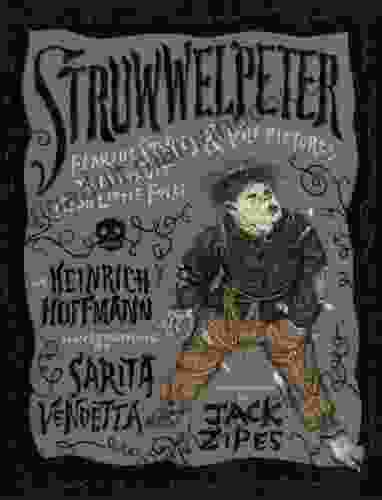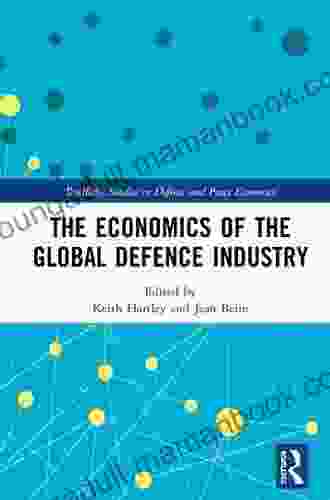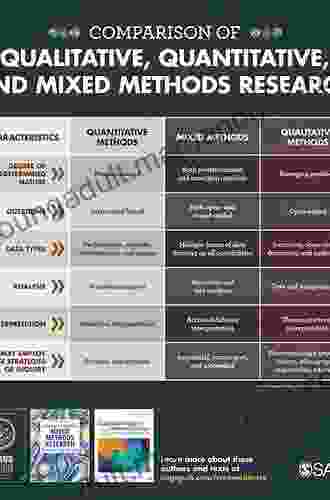Research Methods for Political Science: A Comprehensive Guide

Political science, as a discipline, seeks to understand the complex dynamics of power, government, and political behavior. Research methods are essential tools in this endeavor, providing political scientists with the means to gather, analyze, and interpret data to uncover meaningful insights.
5 out of 5
| Language | : | English |
| File size | : | 50336 KB |
| Screen Reader | : | Supported |
| Print length | : | 476 pages |
Quantitative Research Methods
Quantitative research methods involve the collection and analysis of numerical data. They are often employed when the researcher aims to generalize findings to a larger population or test specific hypotheses.
Surveys
Surveys collect data from a sample of individuals by asking them a series of structured questions. They can be conducted in person, over the phone, or online. Surveys are widely used in political science due to their ability to gather information from a large number of people relatively quickly and efficiently.
- Advantages: Large sample sizes, generalizability
- Disadvantages: Potential for bias, limited depth of responses
Experiments
Experiments involve manipulating one or more independent variables to observe the effects on a dependent variable. In political science, experiments can be used to test the impact of policies, campaign strategies, or political institutions. However, experiments are often challenging to conduct due to ethical and practical constraints.
- Advantages: Causality, control of variables
- Disadvantages: Cost, external validity, ethical concerns
Content Analysis
Content analysis involves analyzing written, visual, or audio materials to identify patterns and themes. In political science, content analysis can be used to examine political speeches, news articles, or campaign materials.
- Advantages: Granular insights, non-reactive
- Disadvantages: Time-consuming, intercoder reliability
Qualitative Research Methods
Qualitative research methods focus on understanding the subjective experiences, perspectives, and motivations of individuals. They are particularly useful when the researcher seeks to explore complex social phenomena in depth.
Interviews
Interviews involve conducting in-depth conversations with research participants. They can be structured, semi-structured, or unstructured, and can be conducted in person, over the phone, or online.
- Advantages: Rich data, customization
- Disadvantages: Time-consuming, researcher bias
Observation
Observation involves observing and recording the behavior of individuals or groups. It can be participant observation, where the researcher directly interacts with the participants, or non-participant observation, where the researcher remains detached.
- Advantages: Real-time insights, non-reactive
- Disadvantages: Observer bias, limited generalizability
Focus Groups
Focus groups involve facilitated discussions with a small group of individuals. They are useful for generating ideas, exploring perspectives, and identifying themes that can be further investigated.
- Advantages: Group dynamics, spontaneity
- Disadvantages: Groupthink, dominant individuals
Data Collection Techniques
In political science, researchers use various data collection techniques to gather information:
Secondary Data Analysis
Secondary data analysis involves using data that has been previously collected by others. This can include government statistics, survey data archives, or academic research databases.
- Advantages: Accessibility, cost-effectiveness
- Disadvantages: Limited control over data quality, potential biases
Big Data
Big data refers to large and complex datasets that can be analyzed using advanced computational techniques. In political science, big data can be used to analyze social media data, campaign finance records, or voting patterns.
- Advantages: Vast amount of data, predictive analytics
- Disadvantages: Data privacy concerns, computational requirements
Ethnography
Ethnography involves immersing the researcher in a specific social or cultural group over an extended period. The researcher observes and participates in the group's activities to gain a deep understanding of their behaviors and beliefs.
- Advantages: Rich insights, cultural sensitivity
- Disadvantages: Time-consuming, potential for bias
Ethical Considerations
Researchers must adhere to ethical guidelines when conducting research in political science. These include:
Informed Consent
Participants should be fully informed about the purpose of the study, procedures, and potential risks before giving their consent. They should also have the right to withdraw from the study at any time.
Anonymity and Confidentiality
Researchers must protect the anonymity and confidentiality of participants. This means that identifying information should not be disclosed without explicit consent.
Objectivity and Bias
Researchers must strive for objectivity and avoid introducing their personal biases into the research process. They should disclose any potential conflicts of interest.
Research methods play a crucial role in political science, providing a systematic and rigorous framework for gathering, analyzing, and interpreting data to understand political phenomena. By carefully selecting appropriate research methods, political scientists can contribute to our understanding of the complex and ever-changing world of politics and government. Understanding the strengths and weaknesses of different research methods is essential for producing high-quality research that advances the field of political science.
5 out of 5
| Language | : | English |
| File size | : | 50336 KB |
| Screen Reader | : | Supported |
| Print length | : | 476 pages |
Do you want to contribute by writing guest posts on this blog?
Please contact us and send us a resume of previous articles that you have written.
 Top Book
Top Book Novel
Novel Fiction
Fiction Nonfiction
Nonfiction Literature
Literature Paperback
Paperback Hardcover
Hardcover E-book
E-book Audiobook
Audiobook Bestseller
Bestseller Classic
Classic Mystery
Mystery Thriller
Thriller Romance
Romance Fantasy
Fantasy Science Fiction
Science Fiction Biography
Biography Memoir
Memoir Autobiography
Autobiography Poetry
Poetry Drama
Drama Historical Fiction
Historical Fiction Self-help
Self-help Young Adult
Young Adult Childrens Books
Childrens Books Graphic Novel
Graphic Novel Anthology
Anthology Series
Series Encyclopedia
Encyclopedia Reference
Reference Guidebook
Guidebook Textbook
Textbook Workbook
Workbook Journal
Journal Diary
Diary Manuscript
Manuscript Folio
Folio Pulp Fiction
Pulp Fiction Short Stories
Short Stories Fairy Tales
Fairy Tales Fables
Fables Mythology
Mythology Philosophy
Philosophy Religion
Religion Spirituality
Spirituality Essays
Essays Critique
Critique Commentary
Commentary Glossary
Glossary Bibliography
Bibliography Index
Index Table of Contents
Table of Contents Preface
Preface Introduction
Introduction Foreword
Foreword Afterword
Afterword Appendices
Appendices Annotations
Annotations Footnotes
Footnotes Epilogue
Epilogue Prologue
Prologue Sarah Theule Lubienski
Sarah Theule Lubienski Elana Freeland
Elana Freeland Sam Tranum
Sam Tranum Cap Daniels
Cap Daniels S J Heyworth
S J Heyworth Craig Martelle
Craig Martelle Bob Blanton
Bob Blanton Gloria Edmonson Nelson
Gloria Edmonson Nelson Robert Reffkin
Robert Reffkin Vitali Lazar
Vitali Lazar Alphonse Momas
Alphonse Momas Allison Lawrence
Allison Lawrence Beth Mccord Kobett
Beth Mccord Kobett Traci N Todd
Traci N Todd Menopausal Marge
Menopausal Marge Christopher Tapp
Christopher Tapp Coral Harper
Coral Harper Alyson Reid Larade
Alyson Reid Larade Andrew Levy
Andrew Levy Jon Gertner
Jon Gertner
Light bulbAdvertise smarter! Our strategic ad space ensures maximum exposure. Reserve your spot today!

 Allen Parker50 Things To Bake Before You Die: A Comprehensive Guide to Satisfying Your...
Allen Parker50 Things To Bake Before You Die: A Comprehensive Guide to Satisfying Your... Calvin FisherFollow ·7.7k
Calvin FisherFollow ·7.7k Geoffrey BlairFollow ·7.1k
Geoffrey BlairFollow ·7.1k Dion ReedFollow ·18.8k
Dion ReedFollow ·18.8k Roberto BolañoFollow ·16.5k
Roberto BolañoFollow ·16.5k D'Angelo CarterFollow ·12.7k
D'Angelo CarterFollow ·12.7k Patrick HayesFollow ·6.4k
Patrick HayesFollow ·6.4k Harrison BlairFollow ·11.5k
Harrison BlairFollow ·11.5k Earl WilliamsFollow ·6k
Earl WilliamsFollow ·6k

 Yukio Mishima
Yukio MishimaUnveiling the Zimmermann Telegram: A Pivotal Document in...
The Zimmermann Telegram, a diplomatic...

 George Martin
George MartinFearful Stories and Vile Pictures to Instruct Good Little...
In the annals of children's literature, few...

 Grant Hayes
Grant HayesJessica the Viscount Wallflower: A Tale of Transformation...
In the opulent ballrooms and glittering...

 Jerome Blair
Jerome BlairThe Economics of the Global Defence Industry: A...
The global...

 Blake Kennedy
Blake KennedyBreath of Heron - A Window into the Poetic Depths of...
In the realm of...
5 out of 5
| Language | : | English |
| File size | : | 50336 KB |
| Screen Reader | : | Supported |
| Print length | : | 476 pages |












